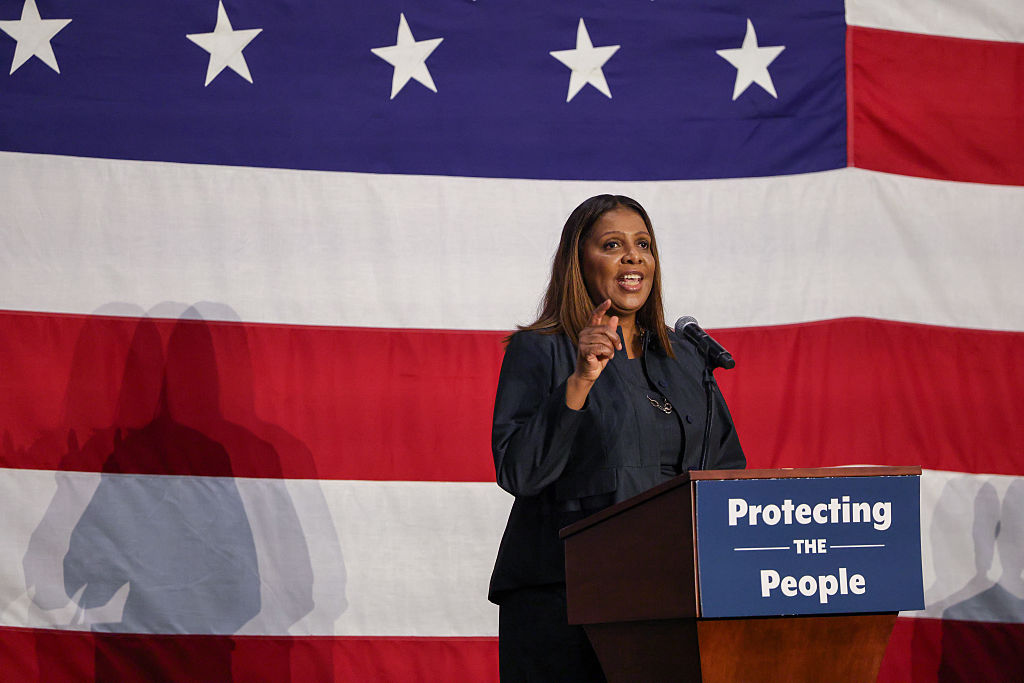Right-Wing Media Watch: George Will and the Politics of Denial
The prominent conservative pundit flails about to find another way of blaming current social woes on anti-discrimination law.
It’s a favorite pastime of conservatives to warn about the perils of unintended consequences. In its most basic form, this warning derives from the conviction that any time government undertakes to remedy one problem, it runs the risk of creating other, even more intractable problems. Now one would think that the current economic crisis we are facing, largely brought about by the unintended consequences of private economic behavior, would compel conservatives to be a bit more humble in warning of the possible excesses of public policy. And some are. But apparently not George Will. In a truly stupefying column in Sunday’s Washington Post, Will pinned the blame for thirty five years of growing inequality in America on a series of Supreme Court cases and Congressional action designed to eliminate discrimination in hiring. The short story is this: in 1971, the Supreme Court ruled that even hiring practices that did not intentionally discriminate against certain groups could be deemed illegal if their effects were discriminatory. To take a hypothetical example, if a local company said it would only hire people who came from a certain part of town, and it happened that that part of town was mostly white, the practice would be deemed discriminatory even if that were not the intent. Unless the criterion was directly and necessarily related to job performance, it could not be a basis for hiring.
According to Will, citing a paper by Richard Vedder and Brian O’Keefe, the consequence has been that:
“many employers, fearing endless litigation about multiple uncertainties, threw up their hands and, to avoid legal liability, threw out intelligence and aptitude tests for potential employees. Instead, they began requiring college degrees as indices of applicants’ satisfactory intelligence and diligence.”
Will provides no data, so it’s hard to pin him down, but it is a fact that many professions, employing large numbers of people, do require licensing and aptitude tests. These include police officers, firefighters, many categories of state and federal workers including foreign service, as well as nurses, lawyers, accountants, teachers and more. Furthermore, many other kinds of jobs, like advertising, newspaper reporters, plumbers and university professors, to name a few, do not now and have never, to my knowledge, required professional employment tests. In other words, absent any hard data, there is no basis for assuming that testing is less common in professional life today than it was forty years ago. To take one obvious example, demands for teacher testing have grown dramatically in the past two decades. Absent any evidence for the overall decline in professional licensing and testing, it should be clear that Will’s entire argument falls apart. (Will cites one piece of data about testing: that there used to be 2000 different kinds of aptitude tests. Now, one assumes, there are many fewer, though Will doesn’t say. But that there are fewer kinds of aptitude tests in use doesn’t mean that fewer people are being tested. It just means there are fewer types of tests).
It is true, as Will notes, that there has been an explosion in college enrollment since the 1970s. And virtually every study suggests that the growing inequalities in American society are a product, in part, of the growing gaps between the incomes of the college-educated and the non-college educated. But Will has provided the flimsiest basis for pinning that growing gap on efforts against discrimination.
One assumes that if Will had a better argument to make, he would have made it. But this incredibly shallow argument is really just an excuse to write the final paragraph:
” Soon the Obama administration will arrive, bristling like a very progressive porcupine with sharp plans — plans for restoring economic health by “demand management,” for altering the distribution of income by using tax changes and supporting more muscular labor unions, for cooling the planet by such measures as burning more food as fuel, and for many additional improvements. At least, those will be the administration’s intended consequences.”
There are many ironies in this parting shot, but one that is worth special attention is the petty little dig at Obama’s likely efforts on climate change. After all, has there been a larger unintended consequence of market-based activity, specifically the industrial revolution, than the perilous threat of global warming that is an unintended effect of the millions of private acts in creating modern, consumer society.
Let’s leave to the side the fact that for decades Conservatives have dismissed concerns about inequality as liberal hand-wringing designed to interfere with the natural order of things. Conservatives pride themselves on their astute and sober understanding of the limits and foibles of human behavior. And their caution would be worth taking seriously were it not compromised by an overwhelming, ideological blindspot – that human nature’s consequences are only negative when humans in government make decisions. In fairness, some conservatives do recognize this. But, for George Will, the conviction remains that, magically, decisions made by private actors necessarily yield good outcomes. It’s as if only governments are staffed by actual humans. In the private sector, one must presume, all decision-making is made by angels. This is the fantasy, in any event, that Will, despite all the available evidence, is still trying to sell.















